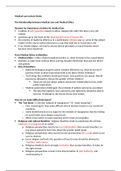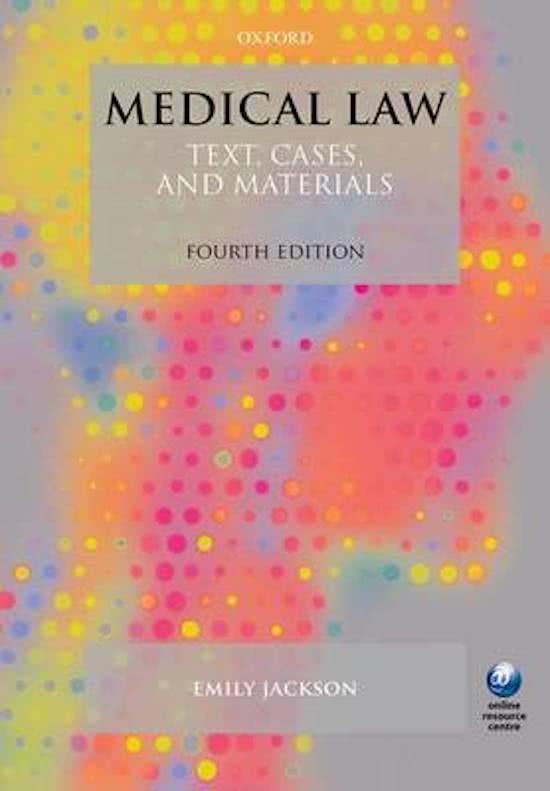Summary
Summary Medical Law - Bioethics notes
- Course
- Institution
- Book
Medical law notes that I used to prepare for my Medical Law exam, achieving 2.1 in Medical Law and a first class honours overall. This document sets out the key principles and cases, reading material notes, notes on class discussions and points of evaluation that will aid you in preparing high qual...
[Show more]




